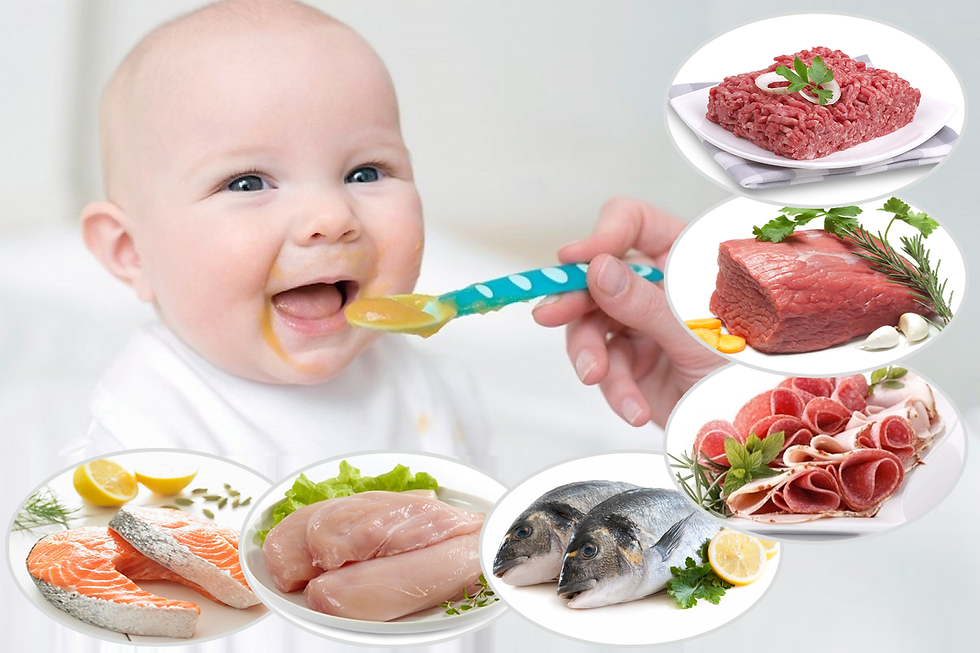For a healthy lifestyle for our children .. Tips and guidance
- aldaghry
- Jan 3
- 3 min read
Written by Dr. Duha Al-Jamal
Creating a healthy lifestyle for children early in their lives is very important to ensure that they maintain a healthy life in the future. Children often imitate their parents in terms of life choices, so it is important for parents to follow a healthy lifestyle themselves to be a good role model.
Parents should search and read tips on a healthy lifestyle for children; because it is difficult for children to make sound decisions, and make sure that they follow health advice and guidelines themselves.
We will discuss below the most important tips and guidelines for children to enjoy a healthy life
Eating healthy food
Parents should be a role model for their children in terms of healthy eating, drinking and choosing appropriate foods; to avoid the serious health risks associated with childhood obesity.
The following guidelines may help maintain healthy nutrition for children:

• Eat 5 servings of fruits and vegetables daily, and involve the child in choosing vegetables and fruits from the store.
• Do not neglect breakfast, and make sure it contains protein, carbohydrates, and vegetables.
• Chew food carefully, and do not rush to eat the meal.
• Involve your parents in preparing one meal per week.
• Eat whole grains; such as oats, brown rice, and whole wheat pasta.
• Drink plenty of fluids; especially water, low-fat or fat-free milk, and low-calorie drinks.
• Avoid foods and drinks that are high in sugar.
• Eat meals that contain the five food groups; vegetables, fruits, proteins, grains, and dairy products in a balanced amount.
Your child can get the necessary nutrition through a balanced diet without the need for supplements. However, you can consult your doctor to give your child the supplements that he or she may need according to the child's nutritional requirements based on age, weight, gender, and physical activity. Supplements that can be given to your child include chewable calcium tablets, vitamin tablets, and fish oil tablets.
Practice physical activity

Time spent watching TV, playing video games, and other electronic devices should be reduced to no more than two hours per day for children over the age of two. In contrast, time spent practicing individual or group activities with family members should be increased.
The following tips can also help keep children physically active:
• Incorporate physical activity into your daily routine, and do 30 to 60 minutes of physical activity each day, such as cycling or walking with your family.
• Help with household chores, such as dusting or vacuuming.
• Play outside with other children if there is a garden or safe outdoor space that allows it.
Getting enough sleep

Children need enough sleep to grow healthy, and good sleep for children is linked to maintaining a healthy weight, improving attention and concentration, managing stress and emotions, and maintaining a healthy eating pattern. In contrast, lack of sleep is linked to higher rates of obesity.
Children aged 6 to 12 need 9-12 hours of sleep a night, while older children need 8-10 hours of sleep a night.
The following tips can help establish a bedtime routine for children to help them get a good night’s sleep:
• Turn off the lights at a set time each night.
• Avoid using electronic devices several hours before bedtime.
• Read a book or listen to a story before bed.
• Go to bed and wake up at the same time every day as much as possible, even on holidays.
• Take a warm bath before bed.
• Use the bed for sleeping only, and do not study in bed.
Visit the doctor regularly and get vaccinated

You should visit the pediatrician regularly to follow up on your child's measurements such as height, weight, blood sugar level, and normal blood pressure for the child according to the child's age and health condition.
You should also make sure that your child receives all the recommended vaccinations according to the schedule in effect in each country. You should also keep a vaccination schedule for children to ensure that you get vaccinated on time to get the best protection against diseases. Vaccination helps reduce the risk of disease and improve your child's quality of life, immunity, and health.
Maintaining body and dental hygiene

Maintaining body hygiene helps protect the body from disease-causing germs.
The following guidelines may help maintain personal hygiene for children:
• Do not share personal items with others.
• Use a tissue when sneezing or coughing.
• Throw away tissues after sneezing.
• Wash hands frequently, especially after
playing outside, before eating, and after using the toilet.
• Use an alcohol-based hand sanitizer outside the home.
Children should also keep their teeth clean, brushing them twice a day in the morning and evening. They should also floss once a day to remove any food particles stuck between their teeth, and they should also visit their dentist regularly.



Comments